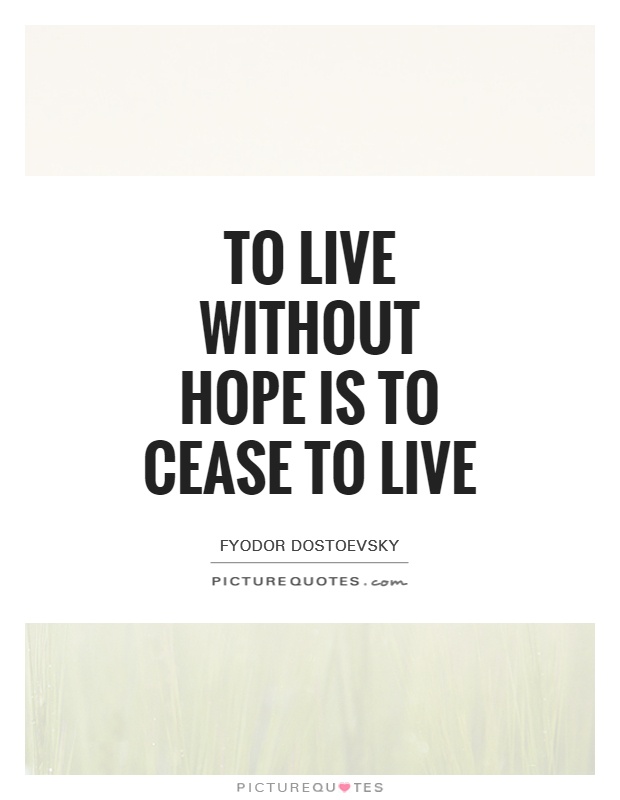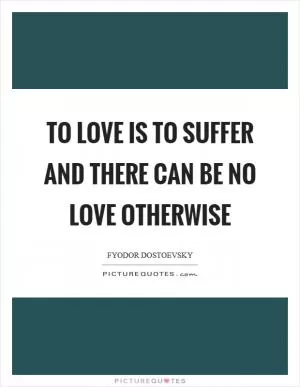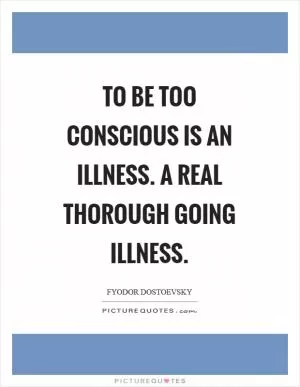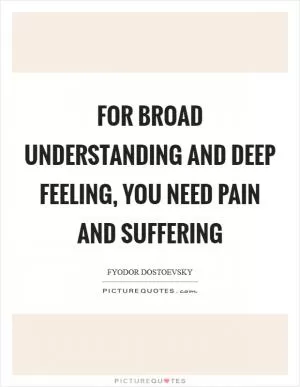To live without Hope is to Cease to live

To live without Hope is to Cease to live
Fyodor Dostoevsky, one of the greatest Russian novelists of all time, is known for his deep exploration of the human psyche and the complexities of the human condition. In his works, Dostoevsky often delves into themes of suffering, redemption, and the search for meaning in a world filled with chaos and despair. One of the most powerful themes that runs through his novels is the idea that to live without hope is to cease to live.Dostoevsky himself experienced profound suffering and despair in his own life. He was imprisoned and sentenced to death for his involvement in a political group, only to have his sentence commuted at the last minute. This experience deeply influenced his writing, and he often grappled with questions of faith, morality, and the nature of existence in his novels.
In Dostoevsky's most famous work, "Crime and Punishment," the protagonist, Raskolnikov, is a young man who is consumed by nihilism and despair. He believes that he is above the moral laws that govern society and commits a heinous crime in an attempt to prove his superiority. However, as the novel progresses, Raskolnikov is haunted by guilt and begins to question his own beliefs. It is only through his eventual redemption and acceptance of his own humanity that he is able to find hope and meaning in his life.
Similarly, in "The Brothers Karamazov," Dostoevsky explores the idea of hope in the face of suffering and despair. The novel follows the lives of three brothers who are each grappling with their own demons and searching for meaning in a world that seems devoid of it. Through their struggles and interactions with one another, Dostoevsky ultimately argues that it is only through love, forgiveness, and faith that one can find hope and redemption.












 Friendship Quotes
Friendship Quotes Love Quotes
Love Quotes Life Quotes
Life Quotes Funny Quotes
Funny Quotes Motivational Quotes
Motivational Quotes Inspirational Quotes
Inspirational Quotes